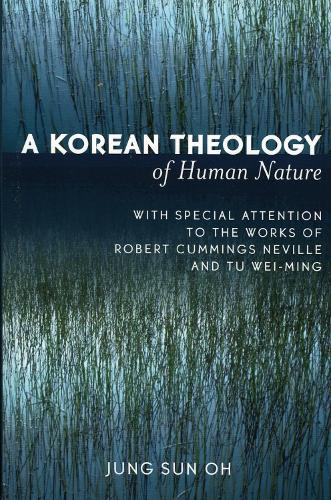
A Korean Theology of Human Nature: With Special Attention to the Works of Robert Cummings Neville and Tu Wei-ming
(Paperback)
Publishing Details
A Korean Theology of Human Nature: With Special Attention to the Works of Robert Cummings Neville and Tu Wei-ming
By (Author) Jung Sun Oh
University Press of America
University Press of America
31st January 2005
United States
Classifications
General
Non Fiction
291.22
Physical Properties
Paperback
242
Width 151mm, Height 229mm, Spine 19mm
367g
Description
This remarkable study articulates a Korean Confucian-Christian theory of human nature-theory of justification, sanctification, and salvation by means of a reformed concept of filial piety. The book investigates in depth the theological anthropology of Robert C. Neville and the inclusive humanism of Tu Wei-ming. Neville and Tu represent contemporary Christian and Confucian approaches to religious anthropology. Furthermore, they have engaged in an extended and productive dialogical encounter on the themes of comparative thought and religious renewal in Asia and North America. This book argues that Neville's and Tu's insights into human nature have great relevance for a comparative, contemporary Korean theology by focusing on the role of a reformed version of filial piety as a new component of Korean theology. The articulation of filial piety as a potential key of contemporary Korean theology is an example of creative appropriation of a Confucian theme of the Christian praxis of sanctification, and ultimately the soteriology of divine grace and transformation. This study construes human nature to be such that any living theology will reflect the creative engagement of Christian theologians as public intellectuals in search of the articulation of the gospel.
Author Bio
Jung Sun Oh is a part-time professor in the School of Theology at Boston University. Professor Oh holds a Th.D. from Boston University, a M.Div. from the Candler School of Theology at Emory University, and a M.Div. from Methodist Theological Seminary in Seoul, Korea.
